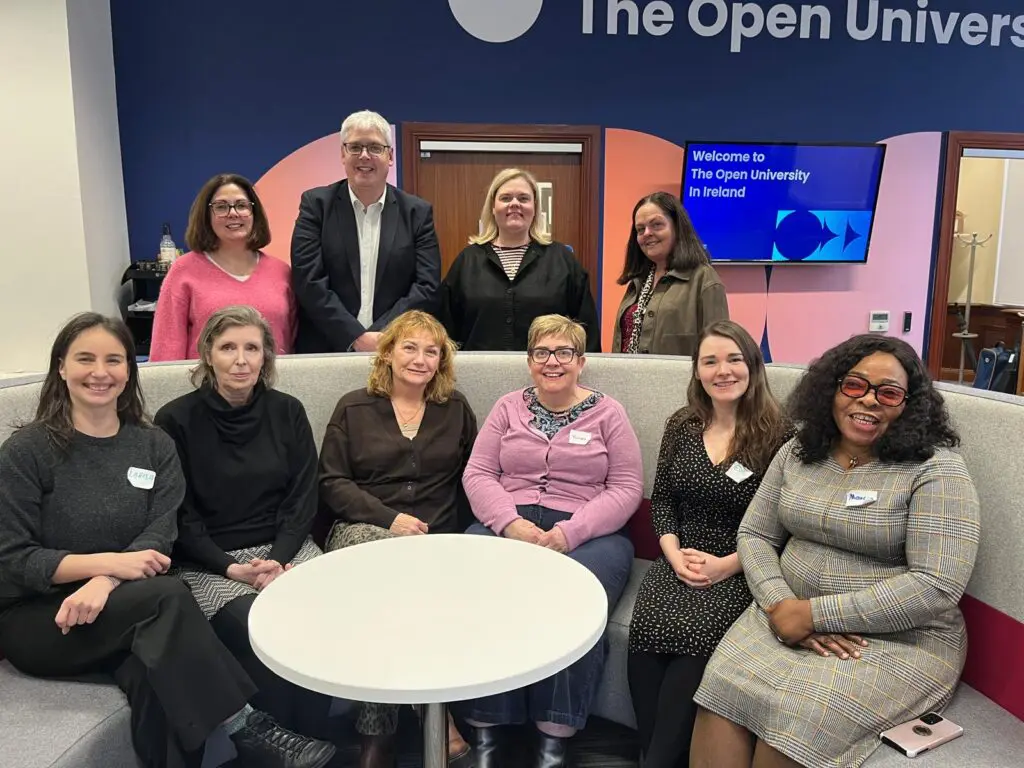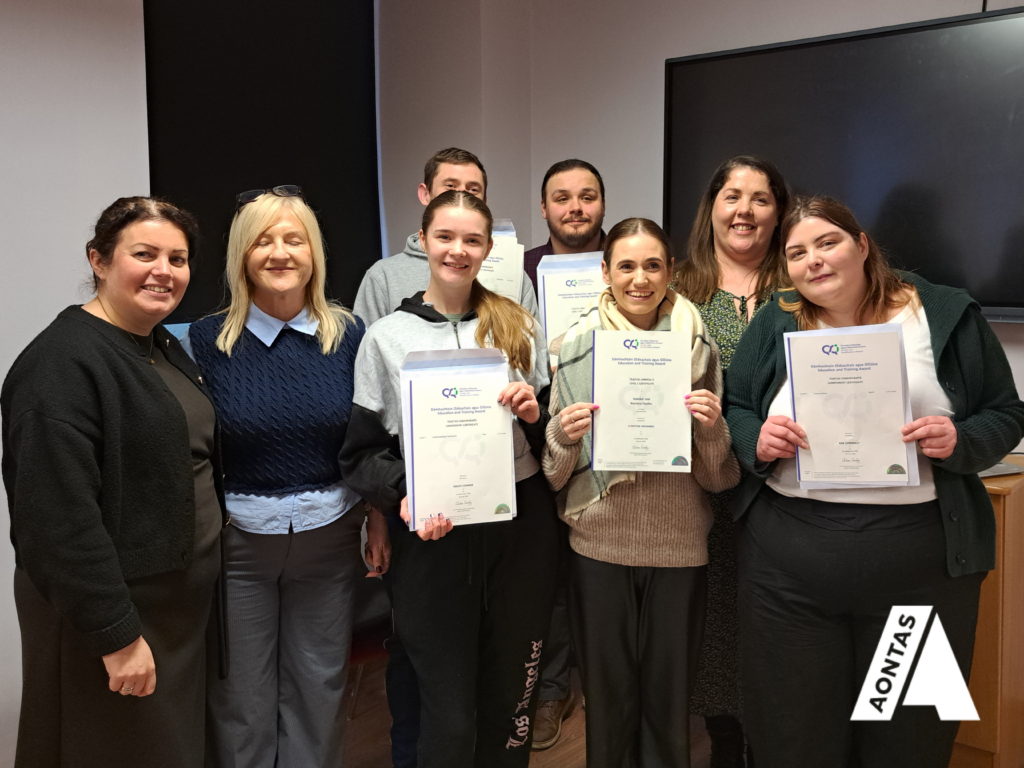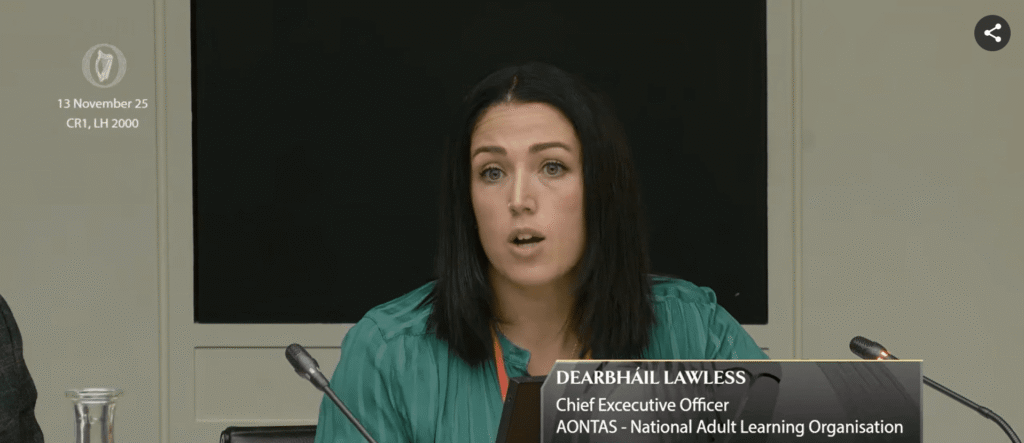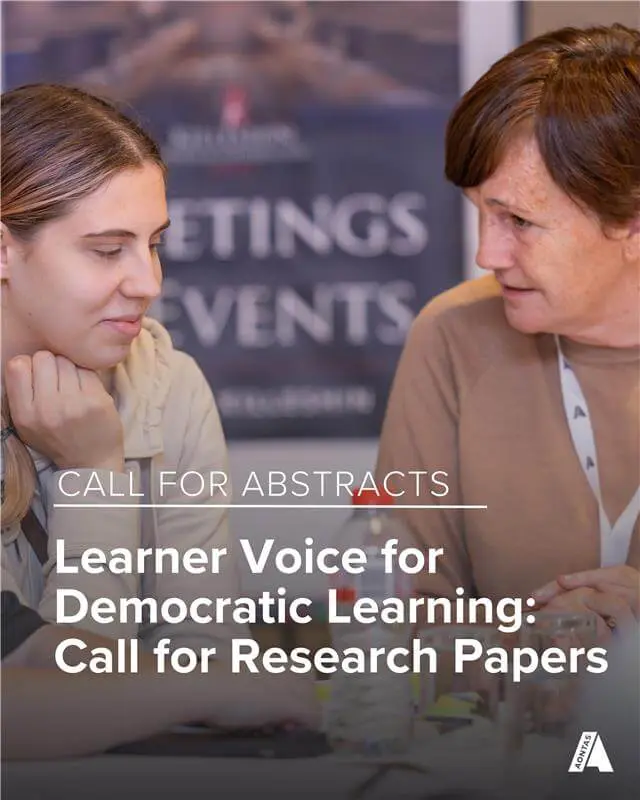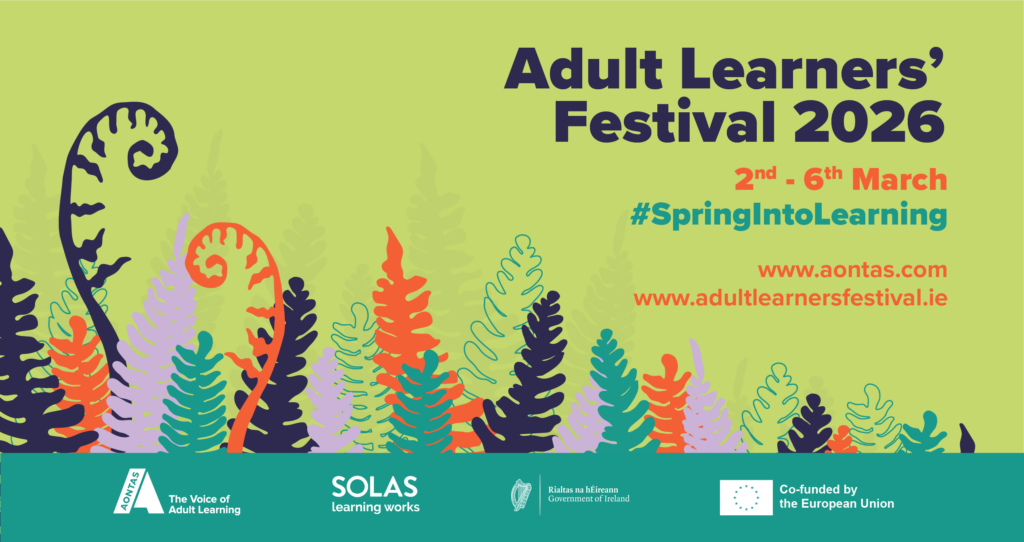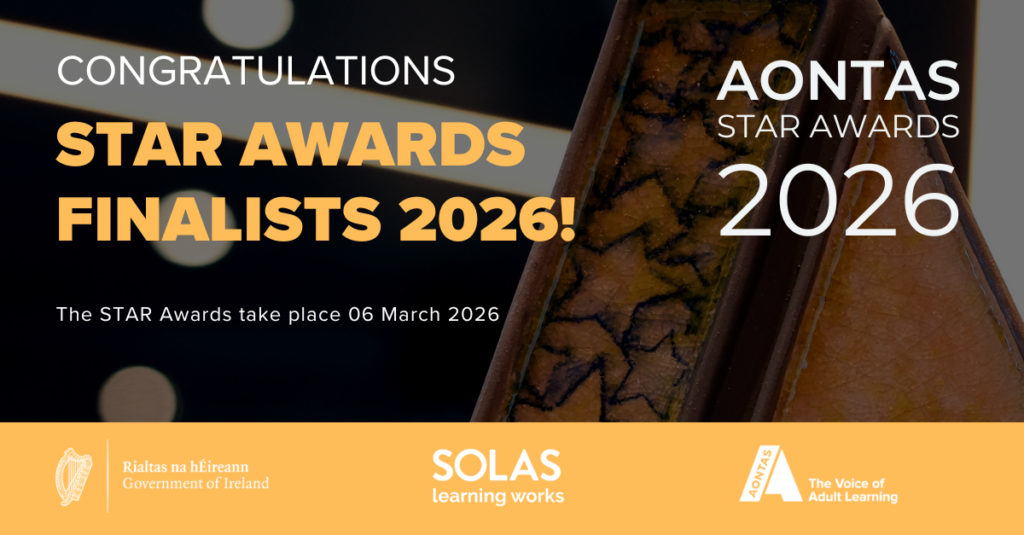By Conor Thompson, AONTAS Project Officer
Under the new National Access Plan, this PATH 4 funding, aims to make higher education campuses more accessible, and to provide more supports for students with disabilities. This funding will create more accessible campuses and opportunities for universities to create new programmes for students with intellectual disabilities.
The funding will also offer training on Universal Design for all university staff. Universal Design (UD) is all about accessibility and the design of an environment so that it can be used and accessed by everyone, regardless of their age, size, ability or disability. We have all experienced UD environments and tools in our day-to-day life. Think about the ramp beside the steps at the post office or the sliding doors at the supermarket. In education settings, Universal Design for Learning (UDL) is growing in influence and popularity.
UDL aims to create learning environments that everyone can access and feel welcome in. The above cartoon by Michael F. Giangreco and Kevin Ruelle sums up the benefits of, and logic behind, UDL. Through changing how we think about things, everyone benefits.
Over the past thirty years, there has been a large increase in the number of people with disabilities accessing higher education in Ireland. Below is a graph from Ahead (the Irish association for higher education access and disability) showing the increase in students with disabilities in Ireland over the past couple of decades.
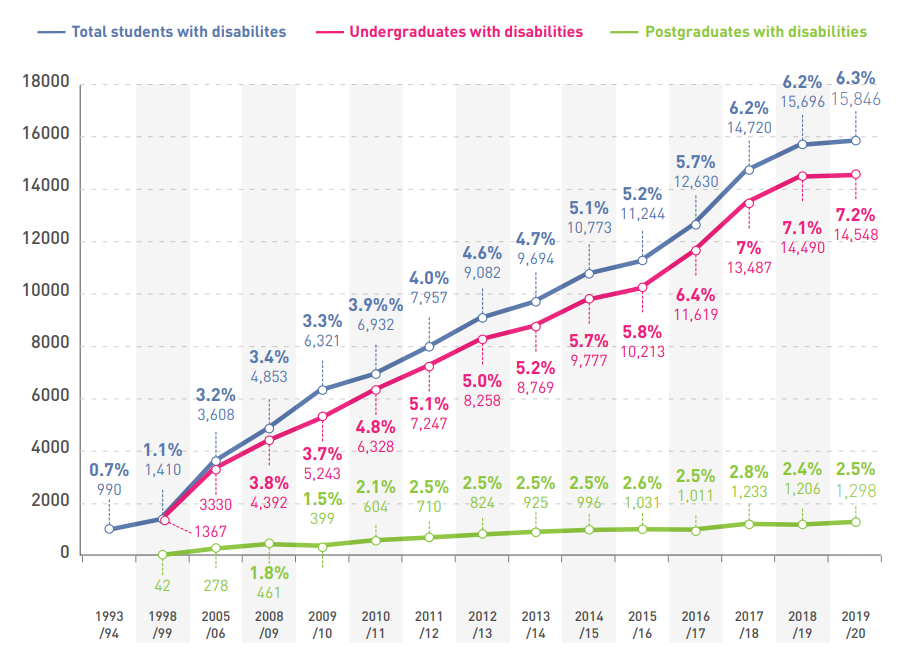
Graph from Ahead Annual Report, 2021
Data gathered by our colleagues at Ahead shows that currently 6.2% of the student body in higher education disclosed that they have a disability. At the beginning of the 1990s, this was less than 1%.
Even though it’s great to see more people with disabilities going to university, some gaps and problems are still there. For example, learners with an intellectual disability still face barriers in accessing education or work and don’t get the right guidance in school.
For this reason, it’s great to see more funding being made available to give students with disabilities more options for study.
AONTAS member Craig Kelly is the chair of the Ability Board from Ability@Work in Cork, which is a dedicated employment service that links employers with skilled people with disabilities who want to work. Craig advocates for the rights of people with different abilities, which is the term he uses in place of ‘disabilities’. We asked for his thoughts on the new PATH 4 plan and funding:
‘This funding could mean new beginnings for people with different abilities,’ Craig said, ‘letting them study or learn new subjects that they could never have before.’
Similar Funding Needed For Adult and Community Education across Ireland
As well as rolling this out in higher education, funding like this would be beneficial more broadly for Further Education and Training, and those providing adult and community education in local communities.
There are many people and groups across the country offering learning opportunities for adults with intellectual disabilities. For example, The Blue Teapot theatre company in Galway is a multi-award-winning performing arts school and community theatre programme for people with intellectual disabilities. Check out a previous blog from Amy Gibney, our Community Education Officer, to find out more about their great work. Community education groups must continue to receive the support and funding they need to meet to the needs of the communities they serve.
As Fergus Craddock (ETBI) and Nina Burke (SOLAS) recently wrote, community education ‘can offer a local, accessible, and welcoming gateway to explore learning opportunities towards achieving personal, social, and educational fulfilment and goals.’
Adults with disabilities may want to first access education locally in their communities, and then decide whether they’d like to try out some of the new programmes at universities, which will now be developed with this new PATH 4 funding.
Craig Kelly from the Ability Board said: ‘This is the whole point of inclusion and diversity. Why should a person with different abilities be pointed to a certain type of study? Instead, why not see past people’s abilities and let people have the same decisions to make about their studies as everyone else.’
This PATH 4 funding provides greater access to higher education for people with disabilities. If there is continued and sustained, reliable support for community education, adults with disabilities (particularly intellectual disabilities) can choose the best path for them.
Read the press release on the Government announcement of PATH 4 funding by clicking here.
Click here to check out AONTAS’s webinar series on Imagining Adult Learning on YouTube.

